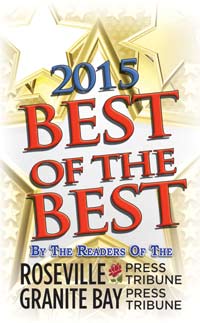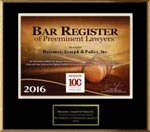
Estate planning lessons from other’s mistakes
On March 11, 2016 I got the call of a lifetime… and I do not mean that in a good way. I got the call from the police, in Logan, Utah, that my mother had been shot to death by her husband. This is not a post about domestic abuse, gun control or mental health awareness. That’s not the point of my webpage. This is an estate planning and probate website so let’s talk about those aspects of this horrible situation. First of all I have posted before, since my mom’s death, about some of things I learned. I want to take those posts and go a step further here. I want you to be able to learn from other’s mistakes.
Just last week I paid off her mortgage. You would think that would be easy to do, right? That is, I have my mom’s money, my mom owed the bank some money, and therefore 2 + 2 should equal four. I have dealt with this before so it wasn’t a shock… though parts of it are a little surprising. If a person owes a bank money you would think the bank would make it really easy to pay, right? Let me tell you they do not! I have seen this before with clients and it can be horrible. My situation was better than many I have seen. Without online access if you call the mortgage company they won’t talk to you. They will not share any information generally. In my mom’s situation I was able to access her online account which enabled me to find out the payoff amount. The online account was already linked to her bank account. Thus it made it pretty easy. However, there was extra money in the mortgage impound account. Some call it an escrow account. Since the mortgage was in the name of Mary Palley and not the Mary Palley Trust they sent me a check made payable to Mary Palley. So what do you do with a check made payable to a dead person?
This is certainly not the first time this has come up for me in the last year. There was a small insurance refund, a magazine refund, a cable tv refund, a credit card refund and several other checks of small amounts of money. They were all made payable to my mom individually and not her trust. I have heard of people leaving a bank account open in the name of the deceased person. I can not say if that’s technically correct but I would err on the side of saying it’s probably not technically correct. I thus can’t endorse that plan. Instead, the proper thing to do, when there is no probate, is to send the check back to the issuer along with a small estate affidavit. In California, anytime the probate assets are under $150,000 a full probate is not required and small estate affidavits may be used to clear assets. In Utah that amount is $100,000. Luckily my mom’s estate qualifies so I have used the small estate affidavits for several small checks. It does feel wrong to mail back checks but it is the technically right thing to do. They usually get re-issued and returned within 2-3 weeks in my experience.
Then the question is who should the checks be made payable to when you do a small estate affidavit? I think an argument could be made to pay them to the decedent’s trust and an argument could be made to pay them directly to the beneficiary or beneficiaries of the trust. I do think technically speaking payment to the trust is probably the most accurate. Thus the small estate would be signed by the trustee of the trust asking for payment to be made to the trust. You would then deposit the money into the trust account, in this case the Mary Palley Trust, and then you can distribute from there.
So if you have a mortgage and a living trust I encourage you to connect that mortgage to the living trust. We advise clients to do this but didn’t do our own that way. What’s that saying about a cobbler’s child….
Also, if you do a re-finance try to do the re-finance in the name of the trust.
Lastly, a new mortgage should be taken out in the name of the trust if it’s allowed and doesn’t have any extra cost.
What else besides connecting mortgages to trusts? Other lessons learned?
I think consolidation into a trust account continues to be my biggest issue. I spent countless hours gathering a small value of stocks… though very well diversified. It would be much easier if people, before dying, are able to organize all their stocks into one or more brokerage accounts. Make sure those brokerage accounts are opened in the name of your trust! It’s not hard to do and saves a ton of work by your loved ones after death.
The same is true of cash accounts, CD’s, money markets, checking, savings, and just about any other financial account. Other than IRA, 401k and retirement accounts just about all accounts should be owned by your trust.
Consolidate, consolidate, consolidate!
LESS IS MORE!
The less accounts the better. You need to be mindful of FDIC limits (currently $250k per bank) but otherwise consolidate!
Bonds are another one we see. Get those federal bonds put into a federal bond account in the name of your trust.
Think ahead by doing stuff while you are mentally capable. Your loved ones will thank you!
Also, if you are thinking about updating your trust just do it! Do not delay. Stuff happens! I hate to say that but it’s true. You aren’t promised tomorrow so if you have changes to make then make them!
I have posted on this general topic several times but I shouldn’t make it sound like I am just a complainer. My mom was nice enough to have a living trust, have most of her assets owned by the living trust, and generally left pretty decent financial records. I feel loved that she took the time to set things up as well as she did.
Much more importantly she taught me well! I can never thank her enough for all she did for me.
With much love, RIP Mary Flynn Palley, 1942-2016.
-John
P.S. Here’s a picture of my mom at her UCLA School of Law graduation about 1979




